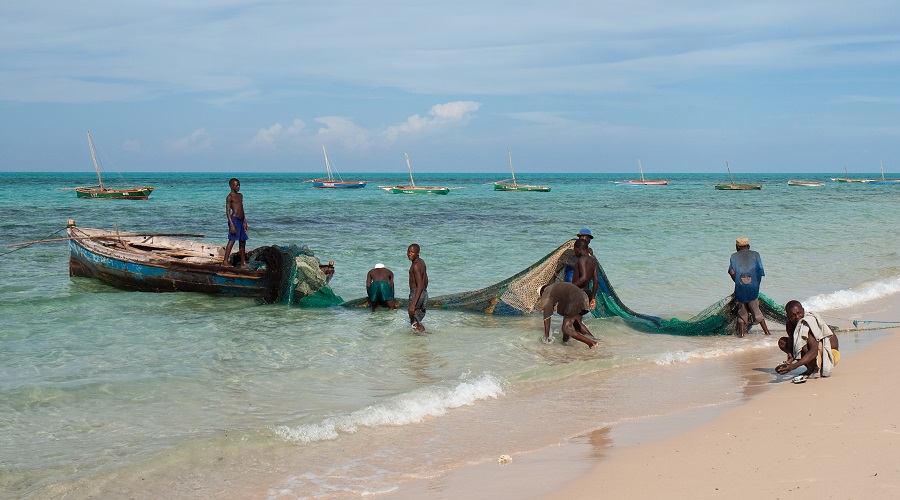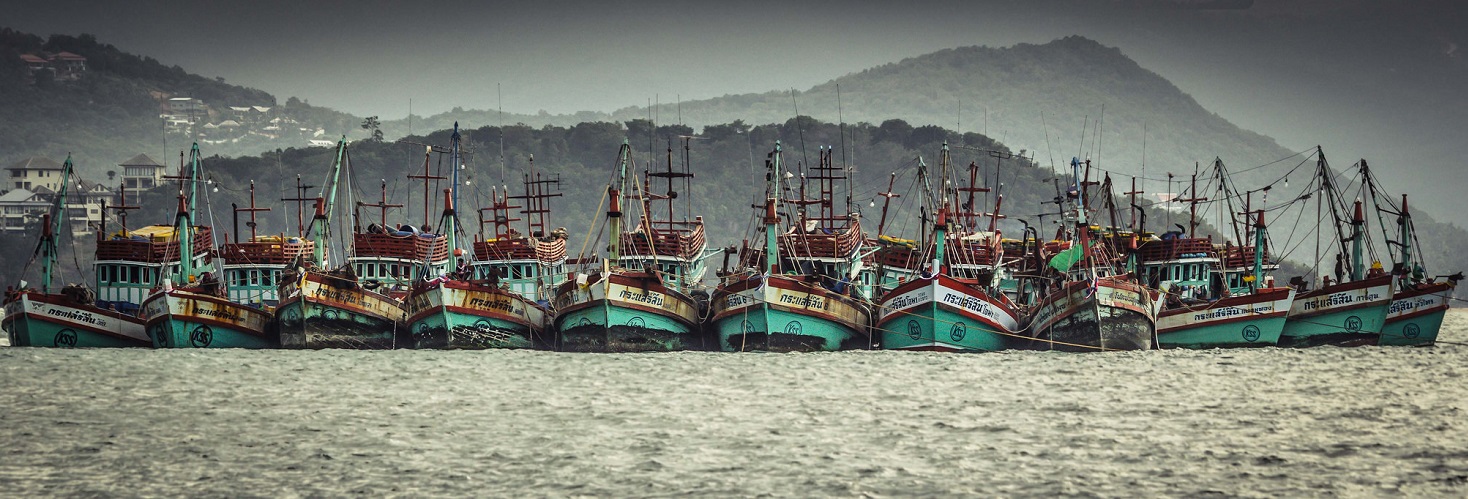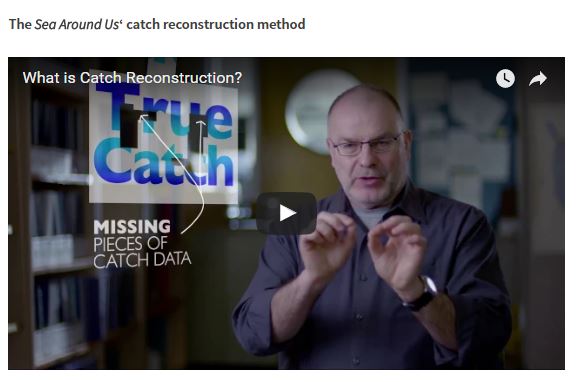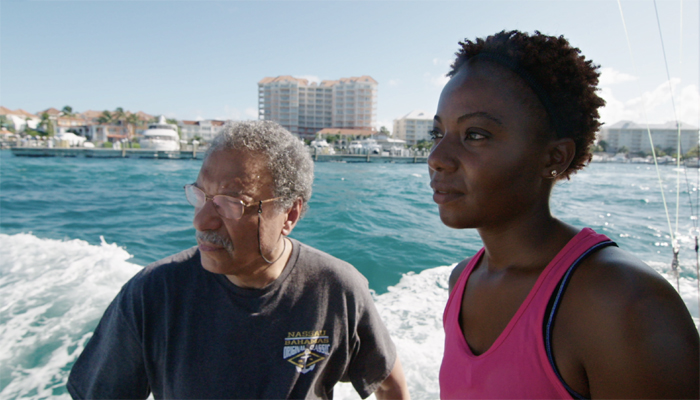The Sea Around Us – Indian Ocean under the lead of Professor Dirk Zeller is looking for outstanding international PhD candidates interested in conducting ‘big-data’ research on fisheries and fisheries conservation issues at the ocean-basin scale. If this is of interest to you, then consider applying for an international PhD Scholarship at the University of Western Australia in Perth. The current round of applications closes on April 6, 2018 and is for international candidates only.
Tag: Dirk Zeller
Mistake in fisheries statistics shows false increase in catches

Fishermen holding a net between boat and beach at Pinda, Mozambique. Photo by Stig Nygaard, Wikimedia Commons.
Countries’ improvements to their fisheries statistics have been contributing to the false impression that humanity is getting more and more fish from the ocean when, in reality, global marine catches have been declining on average by around 1.2 million tonnes per year since 1996.
An Ocean Mystery: The Missing Catch now available for free viewing
Following a successful festival season, the film An Ocean Mystery: The Missing Catch is now available for free viewing.
Besides being premiered on Earth Day 2017 at the Smithsonian National Museum of Natural History and on the Smithsonian Channel, the documentary had a full-house screening at the University of British Columbia and at 11 different international film festivals. It was also recognized in different categories at the Blue Ocean Film Festival, the Indie Fest Film Awards, the International Ocean Film Festival, the Impact Docs Awards, and the American Conservation Film Festival.
Thailand hides big numbers when it comes to its fish catches in neighbouring waters

Fishing boats huddling together waiting for a storm to pass. Koh Samui Island,Thailand. Photo by Chris Bird, Flickr.
Fish catches by Thailand’s distant-water fleet fishing throughout the Indo-Pacific are almost seven times higher than what the country reports to the Food and Agriculture Organization of the United Nations, a new study by the Sea Around Us reveals.
In 2014 alone, the Asian country caught 3.7 million tonnes of fish outside its Exclusive Economic Zone but reported only 247,000 tonnes. This figure, although substantial, represents a decline from peak numbers reached in the mid-1990s when the more relaxed rules of Thailand’s neighbours allowed for massive catches of over 7 million tonnes per year. Back then, as much as 80 per cent of the catch was unreported and much of it likely obtained illegally, the study reveals.
Using data to better manage fisheries subsidies
Text and photos by Tim Cashion.
In early October, I had the opportunity to travel to Geneva to present on behalf of Sea Around Us and the Fisheries Economics Research Unit for a roundtable discussion on fisheries subsidies. The discussion was convened by the E15 Initiative and the International Centre for Trade and Sustainable Development. The ICTSD has been working closely with Rashid Sumaila of the Fisheries Economics Research Unit for several years on the topic of fisheries subsidies. They have used his research in partnership with Sea Around Us to inform countries of the amounts of fisheries subsidies and designated them as the good (beneficial), the bad (harmful), and the ugly (ambiguous).








